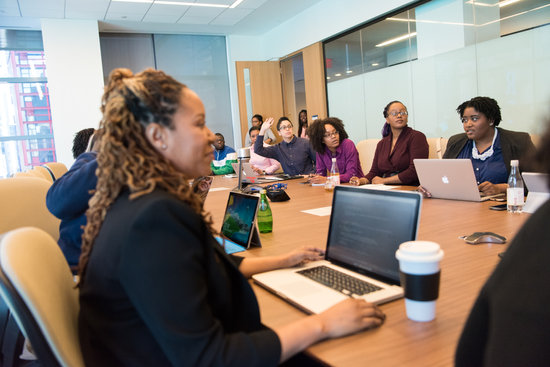What Edtech Companies Can Learn From Kindergarteners

Have you ever observed preschoolers playing in the classroom or on the playground? Of course, you have. What we notice most is the curiosity and bravery that they display. They aren’t afraid to ask questions, express their emotions, or take risks. They are truly free spirits. Somewhere along the way, we lose these abilities, as they are systemically rooted out by formal schooling.
This is a shame because some of the abilities that we display as children would serve us well as adults. Take the field of edtech for instance. Every year, startups led by newly minted MBA’s, and veteran entrepreneurs spring up across the world. They start off with a stellar business plan, a boatload of capital, and a “True Grit” that would make Roster Cogburn proud.
The problem is that many approach business development and operation linearly and rigidly. This invariably means that their company will lack flexibility, curiosity, courage, etc. The companies that don’t fall into this trap usually end up making it in the field of edtech, and those that do have failed before they launch. The former knows that the same skills that are exhibited by Kindergarteners are the same skills that will separate them from the rest of the pack. In this piece, I will discuss things that edtech companies can learn from Kindergartners.
- It’s OK to ask for assistance. When you are a child, your entire life depends on the support of adults, namely your parents. Without them, you would not be able to survive. When we grow up, we are taught to act like adults and be self-sufficient, which means we are less likely to ask for help. Some edtech startups are the same way, opting to go it alone, instead of teaming up with an edtech accelerator or incubator. These organizations are a treasure trove of knowledge, contacts, and resources and can help you take your startup to the next level. I will admit, giving someone five to ten percent of my company would be hard to do, but in many cases, it is the best play.
- Acknowledging your emotions is essential. Kindergartners are not afraid to express their feelings. If they are unhappy, confused, or happy, they let you know. They wear their emotions on their shelves, which lets everyone know where they stand at all times. In most business environments, we are taught to bottle up our feelings as we do not want other people to think of us as unstable. If they do, they won’t count on us for advice or to make significant decisions, as emotions are thought to hamper our ability to make the right choices, especially when it comes to business. I think people have it all wrong. Passion and emotions do have a place in business, but it has to be channeled in the right way. Edtech companies would be wise to create a culture where employees are encouraged to express their feelings, especially when it comes to major decisions. This must be done respectfully, and not devolve into personal attacks. For me, this is more appealing than having a company full of yes-men, that always side with the boss, even when they think you are making a significant mistake that could ultimately be detrimental to the company.
- You don’t know it all. When a child doesn’t know the answer to something, they ask questions. They don’t have a problem with being vulnerable and admitting that they need help. As adults, we are slow to ask questions, as we believe that not knowing something makes us look dumb or ignorant. This has gotten even worse during the age of social media, as memes and videos of people not knowing things that are considered common knowledge, go viral. The most intelligent people in history have always been curious and not afraid to ask questions. It sounds like they had it right. Edtech companies should take note of this, and ask questions. If you don’t know how to get your product adopted by schools, contact someone who has done it successfully. As long as your product is not a direct competitor of yours, I think that they would be eager to help. Most company leaders understand that to get what you want; you have to help people get what they want.
- You can try new experiences before you’re fully prepared. Kids don’t wait until child development research suggests that they are ready to take the training wheels off their bicycles – they ask their parents to remove them and scream “Jesus take the handlebars.” They may get a few bumps and bruises, and then they are off to the next grand experiment. Even though they are developmentally unprepared for most of the world’s challenges, they are good at diving head first into uncharted waters. They are not concerned about the prerequisites of the new activity or whether it’s developmentally appropriate. They say “let’s go for it” first and then fill the rest of the puzzle in as they go. It’s a strategy that risk-averse edtech companies can learn a thing or two from. Children are a living testament to the concept that we don’t have to be fully prepared to move forward. If you are thinking of changing the look and navigation of the dashboard of your app or platform, develop a beta version of it, and invite a select number of your users to take it for a spin and see how it goes. Based on their feedback you can decide whether you should move forward, and how you can make your product even better.
What else can edtech companies learn from kindergartners?






